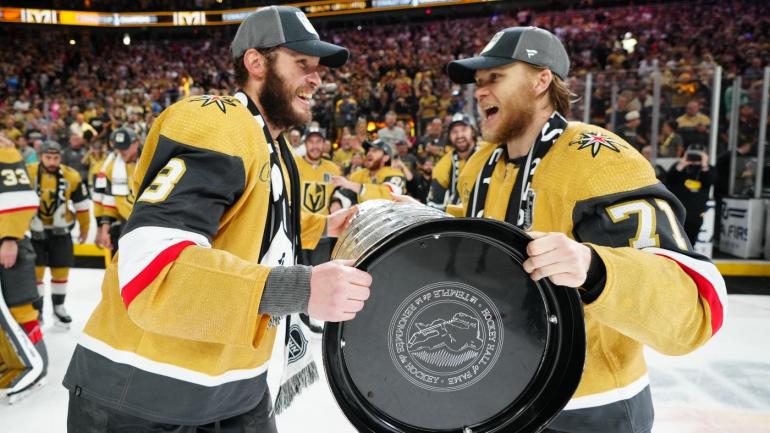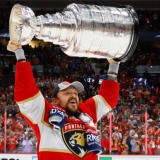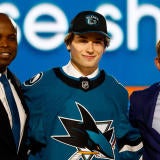
Gone are the days when NHL expansion teams would languish in obscurity for years while struggling to piece together a contending roster. Vegas Golden Knights fans had to wait less than eight months for their first Stanley Cup Final appearance and just six years for their first Stanley Cup victory.
The NHL changed the rules of the expansion drafts in 2017 and 2021 in the hopes of making the Golden Knights and Seattle Kraken more competitive right out of the gate, and it worked like a charm. There were envious looks from the other 30 teams, but the NHL made the right call by setting up its new markets for success.
In the past, the NHL gave expansion teams less to work with, and it took them years to find their footing within the league. Look at the teams that entered the NHL between 1998 and 2000 -- the Nashville Predators, Atlanta Thrashers, Columbus Blue Jackets and Minnesota Wild -- and it's easy to see why the league was more interested in dealing better hands to the Golden Knights and Kraken.
In those earlier expansion drafts, existing teams could protect the following players:
- One goaltender, five defensemen and nine forwards
OR - Two goaltenders, three defensemen and seven forwards
Under those rules, in theory, expansion teams might have to settle for a backup goalie, sixth defenseman or fourth-line forward from each existing franchise. Those rules set up expansion teams for failure in the early years, and the early results from the four teams mentioned above make that very clear.
- The Predators missed the playoffs in their first five seasons and did not win a playoff series until 2011
- The Thrashers made the playoffs once and won zero playoff games before relocating to Winnipeg
- The Blue Jackets didn't make the playoffs until 2009 and did not win a playoff game until 2014
- The Wild reached the conference final in their second season but have not been back
Those four teams have one relocation and one Stanley Cup Final appearance between them. If the NHL is trying to develop new fan bases in non-traditional markets, that is not the way to do it.
When the NHL chose to expand into Las Vegas and Seattle, it decided to do things a little differently. Instead of forcing the Golden Knights and Kraken to take other teams' scraps and like it, the league tweaked the rules to make the new franchises more competent right away. In the 2017 and 2021 expansion drafts, existing teams could only protect:
- one goaltender, three defensemen, and seven forwards
OR - one goaltender and eight total skaters, regardless of position
On top of those new rules, teams had to protect players with no-movement clauses, which only handcuffed the existing franchises even more.
In 2017, some teams panicked, and the Golden Knights took advantage. Vegas received William Carrier, Reilly Smith, Shea Theodore and Alex Tuch in exchange for taking other players on their respective teams. In the cases of William Karlsson and Jonathan Marchessault, they were the players the Blue Jackets and Florida Panthers wanted Vegas to take.
Tuch was dealt to the Buffalo Sabres as part of the Golden Knights' blockbuster trade for Jack Eichel in November 2021. The other five players were on the ice celebrating with the Stanley Cup on Tuesday night.
When the Kraken's turn came in 2021, teams had learned their lesson from dealing with the Golden Knights. Seattle didn't make any trades in which they received one player to take another unprotected player. That said, the Kraken still got quality players at every position.
Yanni Gourde, Jared McCann, Jordan Eberle, Brandon Tanev, Jamie Oleksiak, Carson Soucy and Vince Dunn all played big roles in the Kraken's playoff run this past season. They helped lead Seattle past the defending Stanley Cup champion Colorado Avalanche in the first round, and they pushed the Dallas Stars to seven games in the second round.
As it turns out, letting new franchises have access to NHL-caliber players is a good idea. Is that fair to the expansion teams that came before Vegas and Seattle? No, but that doesn't make it wrong. The league recognized that it was too harsh on those teams in the past and made the proper corrections. Now, the NHL is firmly entrenched in two new markets, and those teams have the foundation to keep their success rolling for the foreseeable future.

















